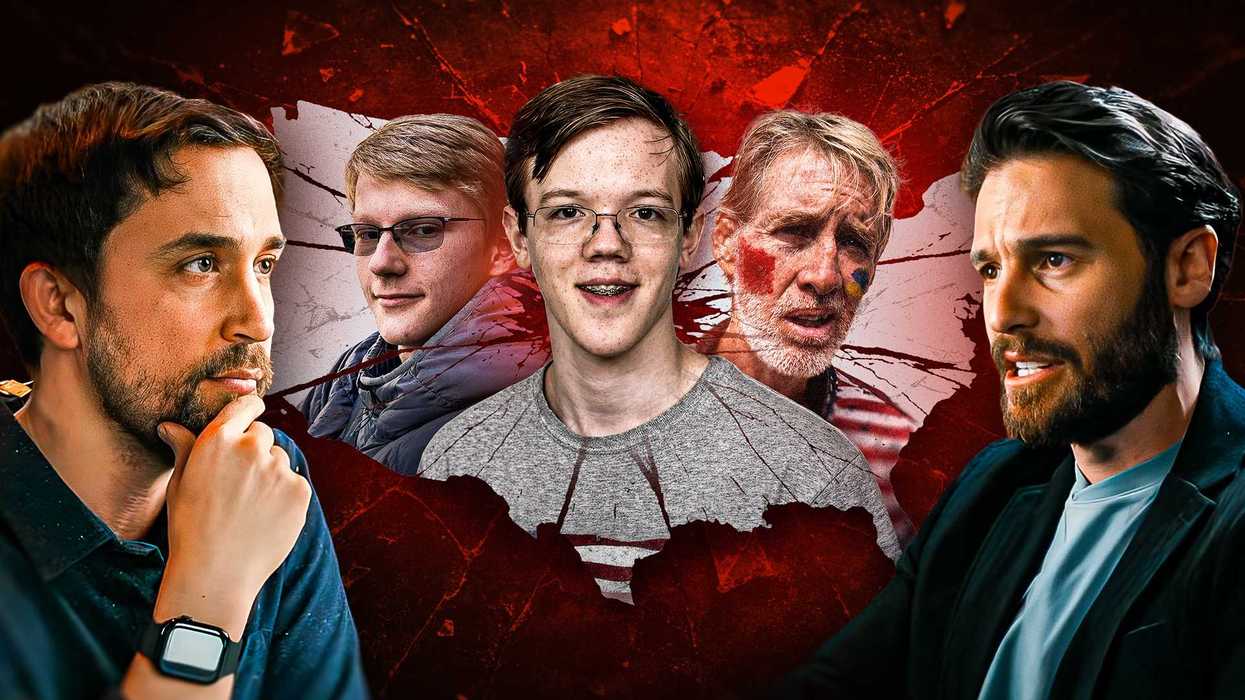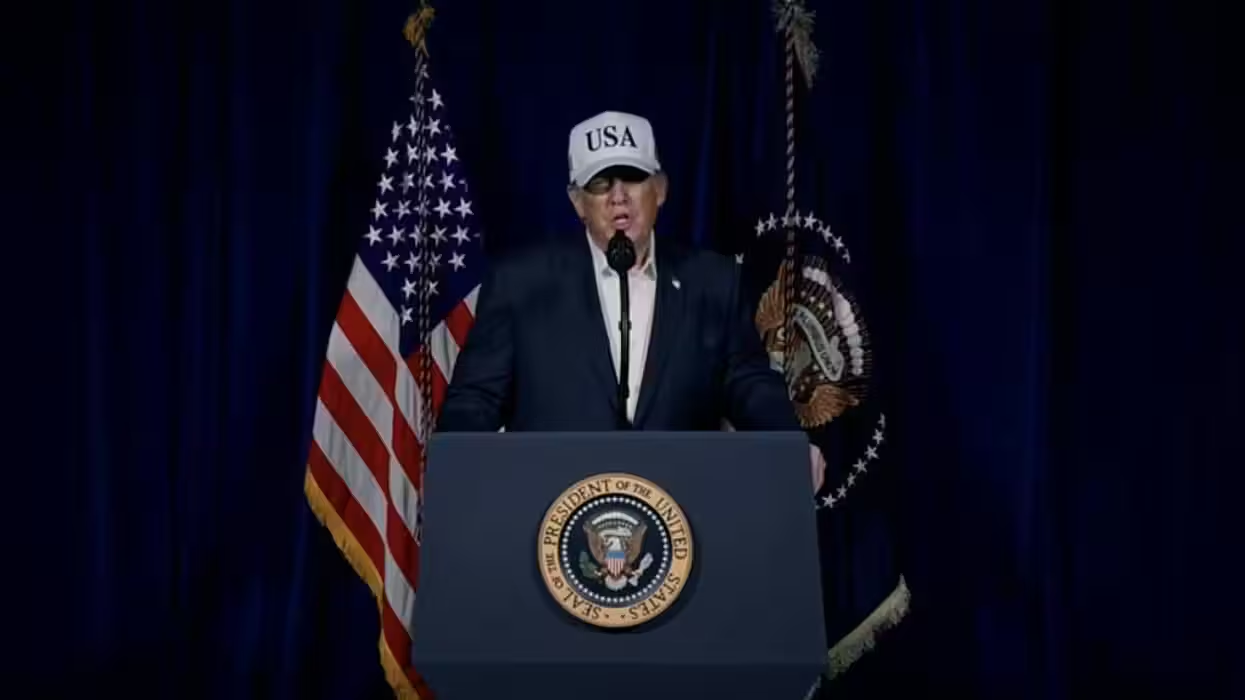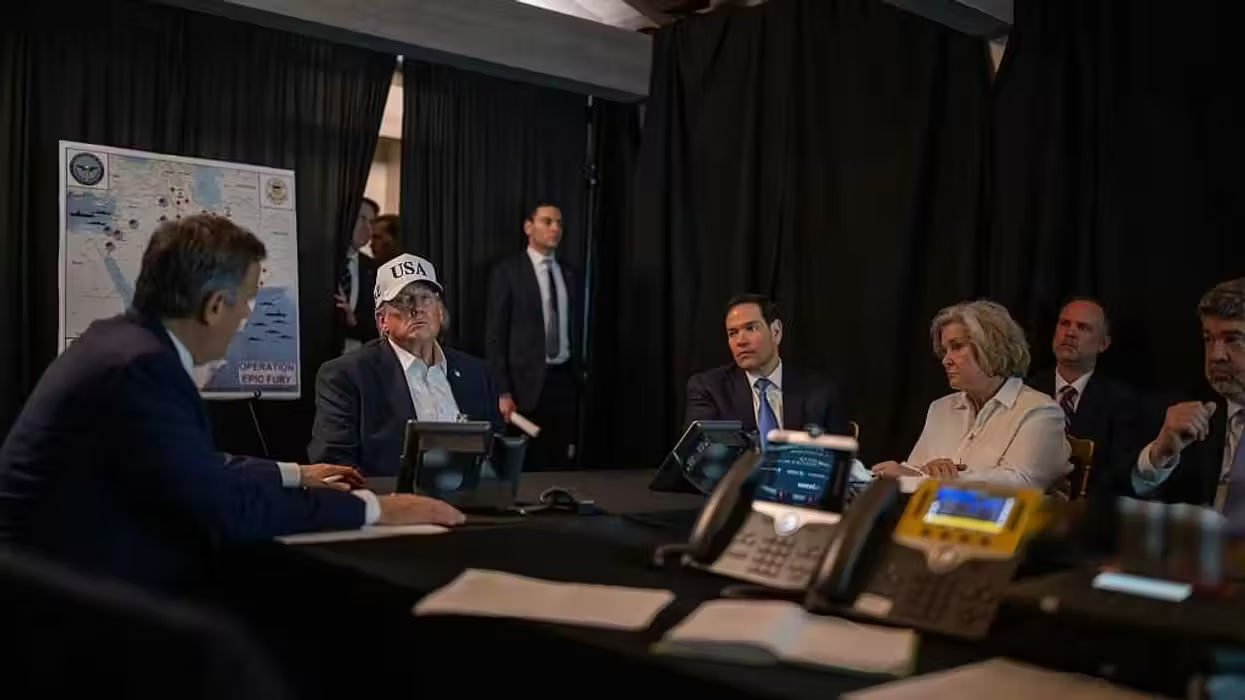
© 2026 Blaze Media LLC. All rights reserved.
Should the Federal Gov't Consider Internet Access a 'Civil Right?' At Least One Faith Group Says 'Yes'
August 15, 2011
...the "haves" and "have nots."
Is access to the Internet a "civil right?"
Each individual's answer to this question is generally dependent upon a variety of factors -- political affiliation, geographic location, economic status and the like. While one side of the debate claims that high speed broadband access is most certainly a right that everyone, regardless of socioeconomic status, should enjoy, others disagree.
Really, the entire debate is focused upon the "haves" and "have nots" (i.e. the people fortunate enough to have access at home or in their local communities and those who do not have the ability, for a variety of reasons, to be digitally connected). In a June 2010 article, Rebecca Tuhus-Dubrow of the Boston Globe summed the debate up as follows:
...increasingly, activists, analysts, and government officials are arguing that Internet access has become so essential to participation in society — to finding jobs and housing, to civic engagement, even to health — that it should be seen as a right, a basic prerogative of all citizens. And in cases where people don’t have access, whether because they can’t afford it or the infrastructure is not in place, the government should have the power — and perhaps the duty — to fix that.
It's easy to throw the term "civil rights" around, but what does it actually mean? Many times, people stake the claim that a product or a service is a "right" when they -- or others they advocate for -- don't have access to it. But, there is certainly a fine line in some cases between "rights" and services. Let's take a look at the definition of the term "civil rights" and briefly examine its intended words and their practical application:
rights to personal liberty established by the 13th and 14th Amendments to the U.S. Constitution and certain Congressional acts, especially as applied to an individual or a minority group.
To understand this definition is to understand the contents of these amendments. The 13th amendment abolished slavery and the 14th, which certainly has more layers, was intended to ensure equal protection for all races within every American state. Additionally, the 14th amendment ensures American citizenship. Section one reads:
No State shall make or enforce any law which shall abridge the privileges or immunities of citizens of the United States; nor shall any State deprive any person of life, liberty, or property, without due process of law; nor deny to any person within its jurisdiction the equal protection of the laws.
In this section, it is clear that states may not create laws that hamper the rights of Americans. Additionally, every man, woman and child is entitled to due process and equal protection. But, when it comes to the "State depriving any person of life, liberty, or property," those who call the Internet a civil right likely see the government as failing those who do not have access. To proponents of the civil rights mantra, people are being denied "equal protection." But, does this really apply to Internet access?
Organizations like Ministerial Alliance Against the Digital Divide (MAADD) would say "yes," as the group is a faith group passionately seeking to bring technology to underserved communities that currently lack access to it. MAADD describes itself as follows:
The Ministerial Alliance Against the Digital Divide (MAADD) is a next generation civil rights organization led by ministers devoted to bridging the Digital Divide and promoting personal and economic development in low-income and minority communities across the country. [...]MAADD strongly believes that providing individuals in underserved neighborhoods with access to the Internet and other emerging forms of technology will not only position them for a successful and productive future, but will also provide a platform for communities to participate in social activism on a massive scale.
Critics reading this description may quickly jump on the fact that the group uses the word "civil right" to describe Internet access -- something that many people consider more of a service than a right. Yet, due to inequality in terms of access, talk of broadband reform has been rampant.
Back in December 2010, The Blaze brought you a video of FTC Commissioner Mignon Clyburn (daughter of Rep. James Clyburn) discussing her belief that the Internet must become an "open platform." During this same month, another FCC Commissioner, Michael Copps, said, “Universal access to broadband needs to be seen as a civil right…[though] not many people have talked about it that way.” In response to this commentary, conservative commentator Michelle Malkin wrote:
Face it: A high-speed connection is no more an essential civil right than 3G cell phone service or a Netflix account. Increasing competition and restoring academic excellence in abysmal public schools is far more of an imperative to minority children than handing them iPads. Once again, Democrats are using children as human shields who provide useful cover for not-so-noble political goals.
Below, watch Clyburn's speech:
Over at The Huffington Post, telecom researcher Chris Mitchell writes that, as a result of its merger with NBC, Comcast is required to make the Internet affordable and available to 2.5 million low-income households over the next two years. Interestingly, Comcast's Executive Vice-President David Cohen had the following to say about the civil rights issue:
"Access to the internet is akin to a civil rights issue for the 21st century. It's that access that enables people in poorer areas to equalize access to a quality education, quality health care and vocational opportunities."
Mitchell continues:
This is why so many communities are building their own next-generation networks - they know that these networks are essential for economic development and ensuring everyone has "access to a quality education, quality health care and vocational opportunities." And they know that neither Comcast nor the federal government are going to make the necessary investments. They need a solution for the next 20 years, not just the next 2. [...]
The FCC has created a plan to address what it sees as inequalities in Internet access. Iowa's North Liberty Leader describes the 376-page National Broadband Plan (NBP) as "a major push for a nation-wide data services overhaul." The multi-faceted NBP originated in the contentious 2009 American Recovery and Reinvestment Act (i.e. the stimulus). The Leader reports:
The NBP has been estimated to cost between $20 and $350 billion, part of which may be offset by an auction of wireless spectrum to future 4G wireless providers. The NBP is projected to be fully implemented by 2020.The FCC's NBP calls for more access to high-speed broadband, aiming for up to 100Mbps speeds in urban and densely-populated areas but capping rural broadband speeds at just 4Mbps.
Proponents of the "civil rights" semantics do have some valid points. After all, in low-income areas people who find themselves without access to the Internet are at a severe disadvantage. These people can't search for jobs let alone draft, edit and e-mail their resumes to prospective employers. Worse yet, they may not even know (due to lack of experience as a result of a dearth in technology access) how to utilize a computer.
But, Tuhus-Dubrow points out some of the questions and issues people like Malkin are asking and raising:
...characterizing Internet access as a civil right raises a number of vexing questions. Who would pay to bring broadband into households without it? By creating a right based on technology, are we making it harder for citizens to make their own, equally valid decisions to opt out of using it? And some analysts, while supporting the goal of universal service, simply don’t believe that a digital network should be elevated to the status of a right.
Believing that it's important for community groups and local governments to work toward getting all citizens connected is one thing, but embracing the notion that the Internet is a right that the federal government must recognize is another. This debate, like so many others, is controversial and multi-faceted. What do you think? Is universal internet access a civil right that the federal government should ensure? Take the poll below and let us know:
Want to leave a tip?
We answer to you. Help keep our content free of advertisers and big tech censorship by leaving a tip today.
Want to join the conversation?
Already a subscriber?
Billy Hallowell is a digital TV host and interviewer for Faithwire and CBN News and the co-host of CBN’s "Quick Start Podcast."
Billy Hallowell
Billy Hallowell is a digital TV host and interviewer for Faithwire and CBN News and the co-host of CBN’s "Quick Start Podcast."
more stories
Sign up for the Blaze newsletter
By signing up, you agree to our Privacy Policy and Terms of Use, and agree to receive content that may sometimes include advertisements. You may opt out at any time.
Related Content
© 2026 Blaze Media LLC. All rights reserved.
Get the stories that matter most delivered directly to your inbox.
By signing up, you agree to our Privacy Policy and Terms of Use, and agree to receive content that may sometimes include advertisements. You may opt out at any time.






